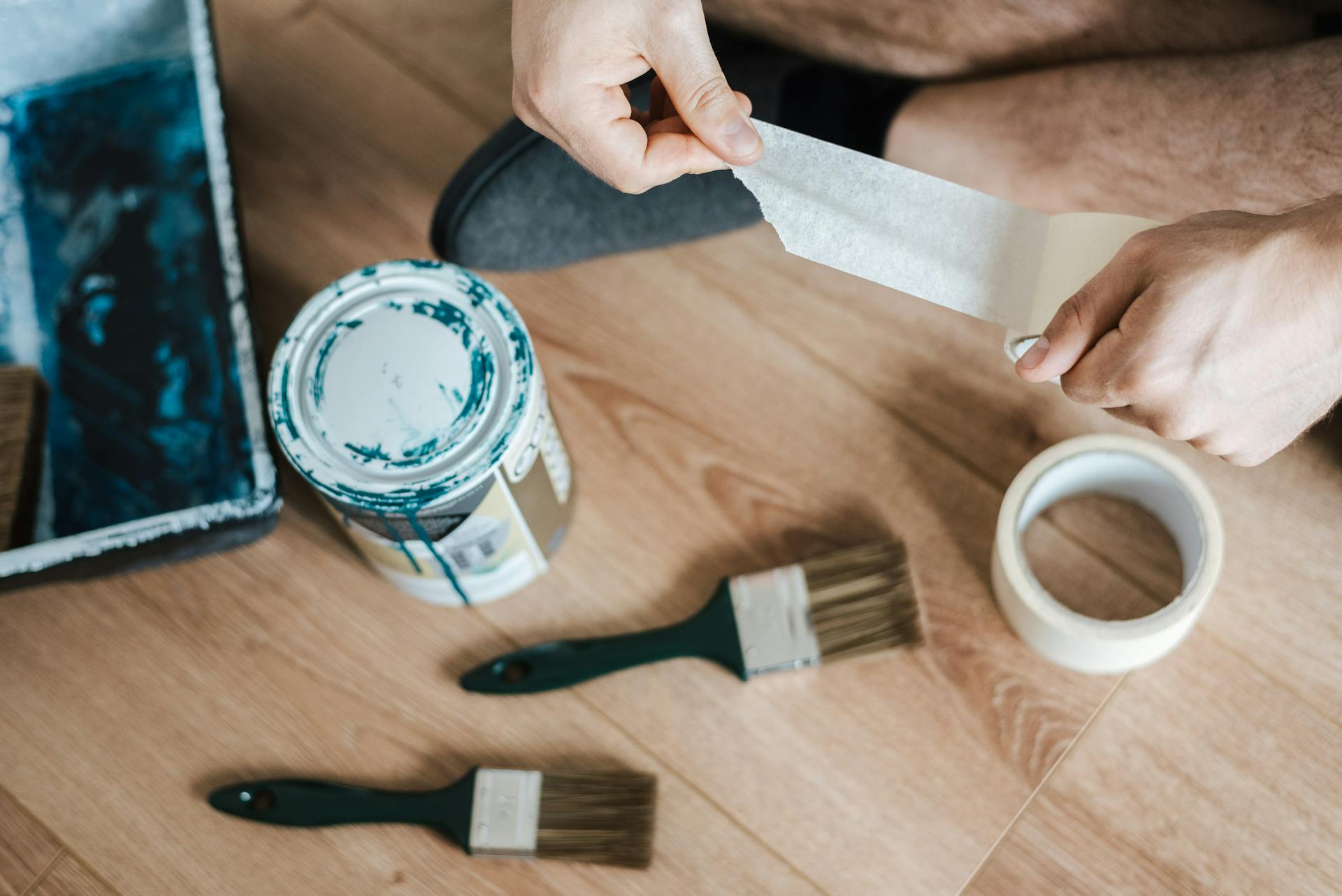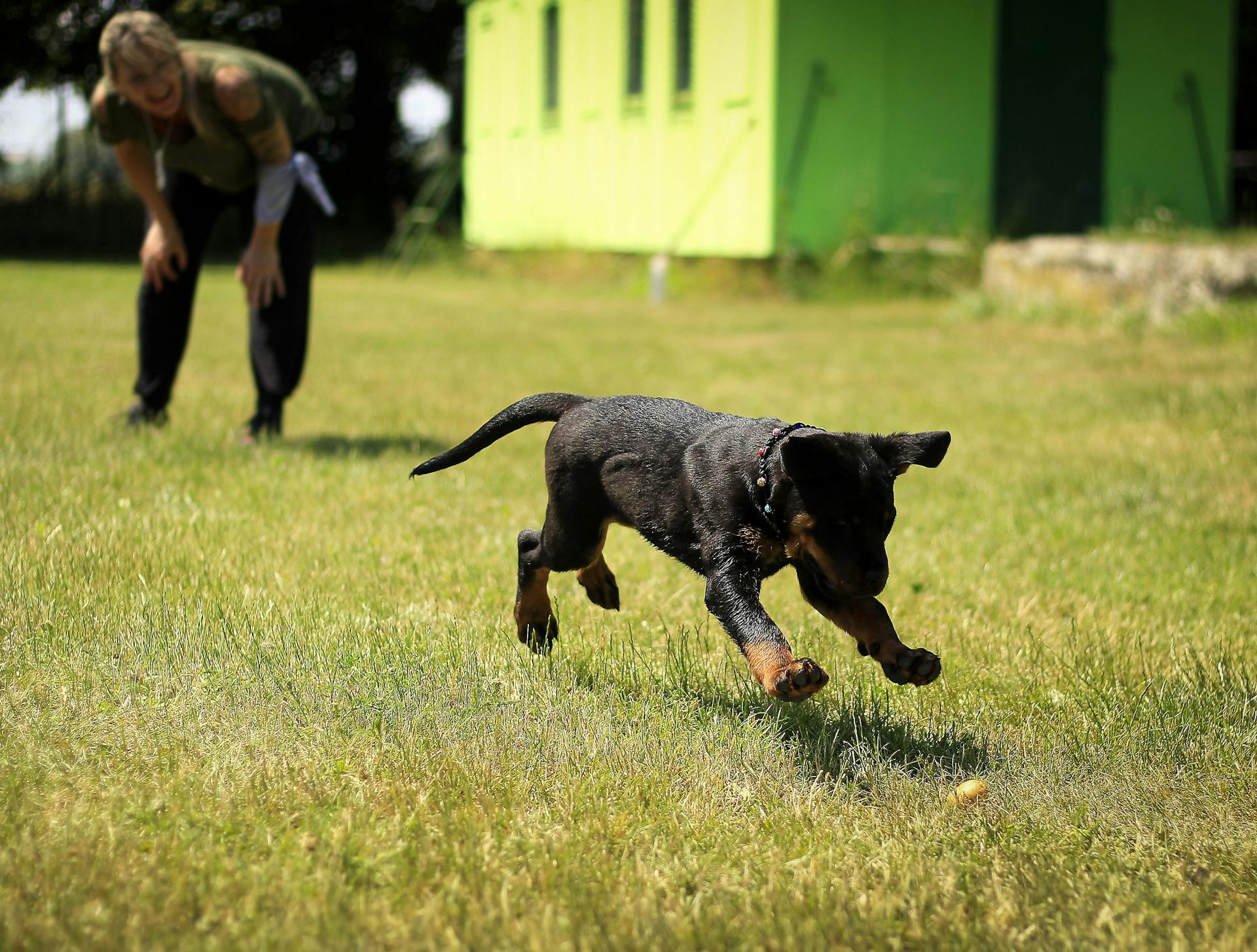
The answer to this question is yes, cats can indeed get fleas in the house. Fleas are small, brownish insects that can survive on their host (which in this case would be your cat) and feed on its blood. They reproduce quickly and it only takes a few weeks for an infestation to become apparent - particularly noticeable by finding black specks or flea eggs around your home.
Due to their small size and fast reproducing capabilities, cats often bring fleas into the home simply by going outside. While they may not require maintenance every day (such as regular brushings), it’s important to spot check your cat every so often or after they come back inside from spending time outdoors in order to ensure they don’t have any fleas trying to hitch a ride inside your house!
Regularly using a veterinarian recommended flea treatment such as topical drops or even an oral medication can help prevent future infestations of these pests if applied correctly for proper protection against them living on your pet(s). Additionally, vacuuming carpets and washing bedding regularly also play an important role in keeping fleas out of the living environment as well - helping you maintain a better quality of life for all occupants inside the home.
In conclusion, it is extremely important to keep up with regular checks for any signs of these pests being present on cats - especially those who spend any amount of time outdoors. Taking proper preventive measures helps keep pest populations controlled while providing relief from otherwise unpleasant situations that could occur due to them living inside our homes!
Can a dog get fleas in the house?
Given that fleas are one of the most common parasites found on dogs and cats, the answer to this question is a resounding yes! A dog can easily get fleas in the house, even if they never go outside. Fleas can travel on clothes, shoes, and furniture, so it’s possible for them to jump onto your pet while you or someone else walks around the house. Additionally, adult fleas lay eggs which may hatch into larvae within your home environment.
The key to preventing flea infestations inside your home is prevention. Limit access of outdoor animals inside as much as possible and keep up with parasite preventatives recommended by your vet; if you're unsure what preventive measures might be best for your pup's needs then always consult with a veterinarian first! Keep carpets vacuumed regularly (since dirt & debris can serve as surfaces upon which eggs may hatch); keep pet bedding clean; and don't forget about taking a peek at blind spots such as underneath furniture pieces where larvae may be hiding out waiting for their next meal! Taking these simple steps not only decreases but nearly eliminates any chances of bringing in live fleas from outdoors or other locations outside of home but also helps catch any pesky worms early before an infestation happens.
Lastly it is important to remember that good hygiene and regular cleaning routines should be implemented throughout every aspect of our furry friends' lives – including beds and other places they frequent – rather than waiting until we see signs of infestation before taking action against potential problems that could occur inside our four walls! By following these instructions not only will you help ensure flea-free living conditions indoors but also create an enjoyable experience all around during snuggles with fido too
How do cats get fleas in the home?
If you're a cat owner, chances are you've had to deal with fleas in your home at some point. Let's take a closer look at how these annoying pests can make their way into our cats' lives.
The most common way for cats to get fleas is via contact with an already-infested animal or outdoor environment. Fleas can be carried by other cats and wildlife, such as rabbits and deer. They can also live in grass, soil, and wood piles that are outdoors – all of which your cat may access when they explore their outdoor surroundings. If flea eggs or larvae live in the environment, they will hatch and jump onto your cat while they explore outside - giving them the opportunity to set up shop on their fur coat.
Unfortunately indoor environments are not immune either – animals have been known to track existing flea populations indoors after contact with infested areas outdoors. Fleas can even hitchhike indoors on our clothing if we've been out exploring where there might be flea activity occurring elsewhere outdoors too!
Finally, it is possible for adult female fleas have the ability to lay eggs without mating first – meaning she could scurry off into whatever corner she finds before hatching new larvae ready for a meal! The only good news here is that these eggs need higher temperatures of over 80 degrees Fahrenheit (27 Celsius) as well as humidity levels around 75% in order to hatch properly so it’s unlikely this would occur inside normal human homes since we try hard not create conditions like this within them.
Simply put; whether directly from other animals or indirectly from the environment outside - there are many ways for unwanted guest such as fleas to find their way into our homes; making it important for pet owners everywhere remain vigilant about treating both pets & the home against unwelcome visitors!
What type of environment is best for preventing fleas in cats?
Having a clean environment is the best way to prevent fleas from bothering your cat. Fleas look for warm, dark environments with plenty of places to hide and breed. Keeping your pet's bedding clean, vacuuming regularly and laundering bedding frequently can help remove flea eggs and larvae.
Using natural plants around the home is also beneficial, as certain plants such as tansy, costmary, spearmint and more naturally repel fleas. Cat owners should also try to routinely bath their cats with a mild animal soap or shampoo containing essential oils—citronella or eucalyptus can both be helpful.
Finally, if you live in an area prone to flea infestations consider using chemical treatments on your feline friend such as sprays and ointments that contain permethrin or pyrethrin (the active ingredients). The preventive use of these products can help keep your cat free from biting insects before an infestation begins!
Can indoor cats get fleas from outdoor cats?
The short answer to the question of whether indoor cats can get fleas from outdoor cats is yes, but it is unlikely. It is more common for a pet to contract fleas from another animal than to pick them up from their environment, including the outdoors. However, this does not mean that indoor cats are immune to flea infestation altogether.
It's important to understand where and how pets, both indoor and outdoor alike, can contract fleas in order to better protect against infestation. Fleas may be brought into the home on an owner’s clothing or shoes after being outside with other pets or strays. They may also be brought in by wild animals such as rodents or rabbits who have come into contact with an infected pet outdoors. If a pet (indoor or outdoor) has been exposed recently it’s best practice for its owner(s) to give them regular baths and use preventative treatments like shampoos and topicals if necessary as a precautionary measure. Additionally, vacuuming the house daily and washing bedding regularly will go a long way towards preventing any potential problems before they start.
Indoor owners should keep in mind that even though their pet doesn't have direct contact with other animals it doesn't make them immune from possible infestations so monitoring their health closely - including checking for signs of itching/biting/irritation - is key. On top of that regular visits with your vet are an absolute must; they will know what kind of preventative measures you need depending on your cat's lifestyle habits and environment which varies greatly between outdoor vs indoor pets etc…
In conclusion although there are plenty of ways for one animal (indoor or outdoor)to catch parasites like fleas from another animal exposure alone isn’t always airborne; staying on top of proper hygiene practices along with frequent checkups at the vet should help keep your furry companion safe no matter where he/she roams!
Are fleas in the house harmful to humans?
You may not realize it, but having fleas in your house can be very harmful to humans. These little bugs feed on our blood and can cause an array of ailments including skin irritation, itching and even allergies. In severe cases they can transmit diseases like the bubonic plague!
Fortunately, fleas are relatively easy to control with a combination of treatments that includes vacuuming carpets, washing bedding regularly in hot water and using special sprays formulated to kill fleas. You can also reduce their presence by preventing infestations through regular use of pet preventatives such as spot-on treatment or oral medication. If you do find yourself with an infestation it is important you treat the entire area and not just the pets as these pests have been known to lay eggs off their hosts onto furniture or even carpeting.
Keeping a clean home environment is paramount if you want to ensure that are no more than a nuisance for you or your household occupants. Once identified take action promptly as even one day’s delay may lead to thousands upon thousands of eggs being laid throughout your residence!
Sources
- https://excitedcats.com/how-to-tell-if-cat-has-fleas/
- https://www.hepper.com/cat-has-fleas-how-to-clean-house/
- https://vetexplainspets.com/how-do-indoor-cats-get-fleas/
- https://allaboutcats.com/fleas-on-cats
- https://whymycats.com/can-cat-fleas-spread-in-the-house/
- https://munchkinkittenstore.com/why-indoor-cats-need-flea-and-tick-treatment-too/
- https://trapandreturn.com/prevent-fleas-outdoor-cat/
- https://mypetandi.elanco.com/en_gb/parasites/fleas/can-indoor-cats-get-fleas
- https://catvia.com/how-to-clean-house-when-cat-has-fleas/
- https://vcahospitals.com/know-your-pet/flea-control-in-cats
- https://munchkinkittenstore.com/the-different-types-of-fleas-that-can-infest-cats/
- https://winnipups.com/how-to-identify-and-get-rid-of-fleas-in-dogs/
- https://www.dailypaws.com/cats-kittens/health-care/feline-parasites/can-indoor-cats-get-fleas
- https://thedutifulcat.com/can-indoor-cats-get-fleas/
- https://www.abchomeandcommercial.com/blog/dog-has-fleas-what-to-do-in-the-house/
Featured Images: pexels.com


